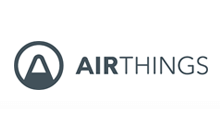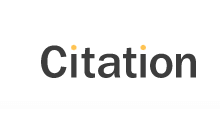 What were your new year’s resolutions, and are you keeping to them?
What were your new year’s resolutions, and are you keeping to them?
The start of a new calendar year is a time that many people use to make a change, but this can only come from some form of self-reflection. Shed pounds, get fit, de-clutter; these are all common resolutions borne from the identification of areas for perceived improvement or ‘opportunities for growth’.
At the recent Newham Governors’ Forum, I gave a presentation about the importance of self-evaluation. This was not entirely out of the blue. The London Borough of Newham has just introduced a requirement on all maintained schools to complete a self-evaluation on their own governance effectiveness.
requirement or not, it is good practice for Governing Boards to conduct an annual self-evaluation of their own effectiveness, which can then be used to drive improvement in the quality and impact of governance. This applies to all organisations: maintained schools and academies alike.
The Governance Handbook for Academy Trusts and Maintained Schools (October 2020) says:
“Boards should regularly evaluate their own effectiveness.”
The introduction of this requirement in Newham will mean that Governing Boards can gain a baseline of their own effectiveness, which can be monitored and updated year-on-year.
Governing Boards of maintained schools are being required to answer a series of questions to help them to measure their board’s effectiveness. These questions are themed to relate directly to the Competency Framework for Governance, published by the DfE.
The answers should be supported by evidence. For example, under the section entitled ‘Accountability’, Boards are asked to evaluate how they know how good the teaching in the school is, how it impacts on and improves pupil outcomes, and what is being done to improve it where it is not good. Here, Governors should describe how they know. Do they ask questions at meetings, undertake visits and ‘learning walks’? How do they learn and understand data, how do they challenge outcomes, how do they know that performance management of staff is done?
For the self-evaluation to be truly effective, it should be undertaken as a collective exercise by the whole Governing Board or a sub-group of Governors appointed to the task, rather than being undertaken solely by the Chair of Governors or Headteacher. This will give opportunity for healthy debate and can feed into an action plan to address areas identified as needing improvement.
The benefits of undertaking a self-evaluation audit are manifold. If audits are received by the deadline, Boards have been offered feedback. Submitting an audit to the local authority gives opportunity to raise issues. From the perspective of the local authority, the audit will provide a cross-borough picture of governance effectiveness and allow themes to emerge, to help to identify areas in which governing boards may require support and training.
But the benefits to the Board itself are just as significant. If a board builds self-evaluation into its annual cycle, it forms a solid framework for improvement, which can shape an action plan. Boards will have a key evidence document to show the Local Authority and OfSTED, and the privilege of having rehearsed answers to questions they may subsequently be asked in an inspection.
Rigorous monitoring and self-evaluation against a plan will mean that, for schools, this will be one annual resolution they will be sure to keep.
Lessons learned from the self-evaluation audit will be shared at the Newham Governors’ and Trustees’ Annual Conference – ‘Governor Effectiveness and Inclusive and Nurturing Schools’ - on Saturday 19 March 2022.
By Sarah Beaumont
Head of Governance
The Education Space




